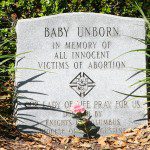Last updated on: December 10, 2016 at 12:15 am
By
CNA Daily News
Lincoln, Neb., Dec 9, 2016 / 05:15 pm (CNA/EWTN News).- Clarity and renewal can be the fruit of disputes and disagreements, Bishop James Conley of Lincoln said to his priests on Monday, reassuring them in the face of confusion regarding Amoris laetitia. “Amoris Laetitia will continue to be discussed among the Church's bishops and the Holy Father, in order to bring clarity and understanding to difficult questions,” Bishop Conley wrote in a Dec. 5 letter to the priests and seminarians of his diocese. “I appreciate that public disagreement in the Church can become a source of discouragement. The history of the Church has included great theological disputes, which have been the source of division but, ultimately, have led to clarity, and to renewal.” He reflected that “the Church is the Bride of Christ, and is protected and guided by the Holy Spirit … We can have confidence in the enduring grace of God to lead us, as it has done in many moments of difficulty or disagreement in the Church's history. The lessons of history are that we need not be dismayed or anxious by the challenges of our own time.” Pope Francis' March 2016 apostolic exhortation on love in the family has been met with a varied reception and interpretation within the Church. Its eighth chapter, on accompanying, discerning, and integrating fragility deals with, among other things, the pastoral care of the divorced-and-remarried, who have not been admitted to Communion unless they commit to living in continence with their partner, forgoing the acts proper to married couples. Yet ambiguous language in that chapter has led to uncertainties about this practice and about the teaching and status of the apostolic exhortation. Some have maintained it is incompatible with Church teaching, and others that it has not changed the Church's discipline. Still others read Amoris laetitia as opening the way to a new pastoral practice, or even as a progression in continuity with St. John Paul II. In June, a letter signed by 45 theologians identified 19 propositions in Amoris laetitia “whose vagueness or ambiguity permit interpretations that are contrary to faith or morals, or that suggest a claim that is contrary to faith and morals without actually stating it.” And in November, a letter sent by four cardinals to Pope Francis was made public, which had requested that he “resolve the uncertainties and bring clarity” regarding his exhortation. Bishop Conley's letter to his clergy is a pastoral response to the situation, and begins by acknowledging that “in recent weeks, some of you have asked me about media reports of controversy and disagreement about the interpretation of Amoris Laetitia.” “Disagreement and conflict in the Church can be unsettling,” he wrote. “Yet moments of sincere disagreement provide the occasion for the Holy Spirit to bring deeper clarity to our understanding and proclamation of the faith. The questions being posed to the Holy Father are intended to help achieve clarity.” He added that discussion on Amoris laetitia “is an opportunity to grow in our understanding of the Church's teaching on the sacraments, the nature of mercy, the process of evangelization and conversion, and the pastoral mission of solidarity and accompaniment. I know that many of you have questions about the meaning of Amoris Laetitia, and its impact on our pastoral ministry. I am writing to address those questions.” The bishop acknowledged that the exhortation does contain “insightful reflections on family life in the modern world, and on the meaning of mercy and charity in pastoral ministry … the Holy Father calls us to discern the hearts of those entrusted to our care, and to facilitate meaningful encounters with Jesus Christ, who loves us, and who calls us to love, uniquely, exclusively, and irrevocably.” He also stated that Amoris laetitia “also includes some passages which have proven challenging to interpret and understand, especially regarding the pastoral care of Catholics who are divorced and civilly remarried, or cohabiting.” Bishop Conley affirmed that the exhortation “does not repudiate the indissolubility of marriage, or the Church's moral teachings regarding divorce,” and neither does it “change the Church's understanding that conscience must be formed according to truth, and that a well-formed conscience cannot guide us in a manner contrary to divine revelation.” “Sexual relationships outside the bonds of marriage constitute circumstances of grave sin,” Bishop Conley taught. “The Lord calls those who are divorced and civilly remarried, or who are cohabiting, to continence … like every person who is conscious of grave sin, divorced and civilly remarried Catholics who engage in ongoing sexual relationships may not approach Holy Communion.” He said that “faithful pastoral care requires that we encourage Catholics to live according to the Gospel's teaching, and accompany them as they grow in understanding and acceptance of the Lord's call … the goal of our pastoral ministry is the salvation of souls – holiness – which is borne of cooperation with grace, and obedience to truth.” The bishop indicated that he had provided the priests with the pastoral guidelines of several diocese, among them those of the Philadelphia archdiocese, the Phoenix diocese, and the province of Alberta. “I have provided these particular documents because they reflect the most faithful interpretation of Amoris Laetitia, and covey the intepretation that is to be considered normative in the Diocese of Lincoln,” Bishop Conley wrote. Concluding, the bishop wrote, “I ask each one of you to continue praying for the Holy Father, who is Christ's vicar on earth. I ask you to pray for the Church's bishops, unworthy successors of the apostles. And I encourage you to continue to lead the Church in fidelity, in charity, in hope, and in peace.” Read more
















